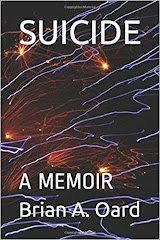Like most serious readers, I experience periods when I'm unable to read anything. Nothing seems satisfactory. I'll pick up a book I've loved for years and the words will lie lifeless on the page. Not Beckett, not Chekhov, not even Nabokov's greatest invention, the intoxicating voice of Humbert Humbert, can trick me deviously into enjoyment. I seem to have lost all my readerly mirth, and even the fire-fangled fronds of Stevens's summer palms refuse to dangle down. Days like these, my swirling thoughts settle on the idea that I'm simply asking too much of fiction, of mere words arranged by the merest mortals. Why should a perfectly tuned sentence be expected to come as powerfully as a climaxing lover? Why should an enveloping image not satisfy unless its light is so brilliant it overpowers the sun by which we read? The doubts come unbidden and circle like melancholy birds that in evening's dying light glide downward to the realization that asking too much is exactly and entirely the point.
We should always ask too much of art. Unless we ask too much, we are not asking enough. Unless we hold art to the highest possible standards, we will eventually find ourselves eating shit and calling it caviar.
All I ask of a novel is that it blow my mind and alter my perception of the world. That's all. And I do not consider that too much to ask of a novel by a living American writer. Franzen and Chabon and Jennifer Egan and Junot Diaz don't do it for me (although I like Chabon a lot, and respect Franzen), but Gravity's Rainbow and Blood Meridian and William Vollmann's The Atlas and Annie Proulx's Close Range and even Infinite Jest do exactly that. Yes, even Infinite Jest, about which I have major reservations and which coincidentally concerns itself with exactly these topics of enjoyment and anhedonia.
There's something else, too, that I'm looking for when I read: a creative originality that doesn't limit itself to content and form but reaches down to the level of the sentence and the word. Bullet my brain with a metaphor; sing me a sentence that sounds like a song. More than anything else, show me something I haven't read before. Not necessarily some surreal invention or outlandish transgression or excremental abjection--which have all been done to death, actually, and have been old hat since Bataille, older than Bataille's poop-smeared hat. All a writer really has to do is show me a shower head in a way that makes me feel I've never looked at a shower head before. Describe a human eye in a way that makes me see eyes differently for the rest of my life. That's what I want to read, a book that impresses me the way Ulysses impressed me on my second and third readings two decades ago, that impresses me like Proust, like Beethoven, like Picasso and Cezanne, like the ceiling of St. Ignazio di Loyola on a rainy day in Rome or the infinite inventions of Borges the Unblind, like the slow dying of the light at sunset over the Great Plains, like making love. That's the book I'm looking for, jonesing for. That's what I need to read.
Wednesday, May 29, 2013
The Riot of Spring
One hundred years ago this evening, on May 29, 1913, the premiere of Igor Stravinsky's Le Sacre du Printemps (The Rite of Spring) caused a now-legendary uproar in Paris. Although the extent to which it was a 'riot' has probably been at least a bit oversold, it's a centenary worth marking, preferably by listening to a good recording of the ballet.
Tuesday, May 28, 2013
An issue I wouldn't wish on my worst enemy--and I mean that from the bottom of my heart
Cliches are islands of excrement clogging the stream of consciousness. They are symptoms of lazy thought, thoughtless thought. Here are three of my least favorite contemporary American examples.
Issue. I have an issue with this usage. Sometime around the millennium, Americans ceased to have problems. No, we didn't stumble into some trouble-free post-scarcity paradise where everything and everybody's free, weed's legal, and the word 'bush' is used only to describe landscapes and pubes. No, not even close. Instead, the usage of the word 'issue' to mean 'problem' apparently migrated from the 'helping professions' (a euphemism that will cheesegrate the eardrums of anyone who's read Robert Stone's great short story "Helping") into the everyday discourse of the corporate world. This sort of thing is far from uncommon; discourse-to-discourse migration is one way languages grow and change, and it's not something that ordinarily annoys me. With this particular usage, however, something a bit more cynical and devious than typical linguistic mutation is going on. A problem demands a solution; an issue, though, is something to be 'worked through' (during many long years of therapy, for example), dissolving the very concept of 'solution' in a cloudy solution of indefinite deferral. The usage is thus of great utility to the corporate world. In the latter part of the last decade, the big banks encountered serious 'issues' with credit default swaps, but since the collapse of the international economy did not constitute a 'problem,' no one really expected them to provide a solution. Having an 'issue' is a great way to avoid accountability and responsibility. It's a big problem.
I wouldn't wish it on my worst enemy. Of course you would. That's what worst enemies are for.
I really wish people would stop saying this. It's never true. (And if you think it is, then the person you consider your 'worst enemy' probably isn't.)
All nonmedical phrases containing the word 'heart.' The late Christopher Hitchens, in one of his finer drink-sodden moments, performed the thought experiment of replacing the word 'heart' with 'dick' in all the sentimental cliches that cluster like so many bloodclots around the circulatory organ. Consider: It's wonderful to be here in the dickland of America. Let's put our hands over our dicks and recite the pledge of allegiance. (Oddly enough, this probably was how oaths were taken in uber-patriarchal Old Testament times, a custom that leaves a trace in modern English in the similarity between the words 'testify' and 'testicle.') He wasn't the greatest boxer, but the kid had a lotta dick. I'm speaking straight from the dick. His speech was stirring and clearly dickfelt. We need to have a dick-to-dick conversation about that.
Let's declare a moratorium on all three of these cliches. And I mean that from the bottom of my dick.
Issue. I have an issue with this usage. Sometime around the millennium, Americans ceased to have problems. No, we didn't stumble into some trouble-free post-scarcity paradise where everything and everybody's free, weed's legal, and the word 'bush' is used only to describe landscapes and pubes. No, not even close. Instead, the usage of the word 'issue' to mean 'problem' apparently migrated from the 'helping professions' (a euphemism that will cheesegrate the eardrums of anyone who's read Robert Stone's great short story "Helping") into the everyday discourse of the corporate world. This sort of thing is far from uncommon; discourse-to-discourse migration is one way languages grow and change, and it's not something that ordinarily annoys me. With this particular usage, however, something a bit more cynical and devious than typical linguistic mutation is going on. A problem demands a solution; an issue, though, is something to be 'worked through' (during many long years of therapy, for example), dissolving the very concept of 'solution' in a cloudy solution of indefinite deferral. The usage is thus of great utility to the corporate world. In the latter part of the last decade, the big banks encountered serious 'issues' with credit default swaps, but since the collapse of the international economy did not constitute a 'problem,' no one really expected them to provide a solution. Having an 'issue' is a great way to avoid accountability and responsibility. It's a big problem.
I wouldn't wish it on my worst enemy. Of course you would. That's what worst enemies are for.
I really wish people would stop saying this. It's never true. (And if you think it is, then the person you consider your 'worst enemy' probably isn't.)
All nonmedical phrases containing the word 'heart.' The late Christopher Hitchens, in one of his finer drink-sodden moments, performed the thought experiment of replacing the word 'heart' with 'dick' in all the sentimental cliches that cluster like so many bloodclots around the circulatory organ. Consider: It's wonderful to be here in the dickland of America. Let's put our hands over our dicks and recite the pledge of allegiance. (Oddly enough, this probably was how oaths were taken in uber-patriarchal Old Testament times, a custom that leaves a trace in modern English in the similarity between the words 'testify' and 'testicle.') He wasn't the greatest boxer, but the kid had a lotta dick. I'm speaking straight from the dick. His speech was stirring and clearly dickfelt. We need to have a dick-to-dick conversation about that.
Let's declare a moratorium on all three of these cliches. And I mean that from the bottom of my dick.
Subscribe to:
Posts (Atom)









